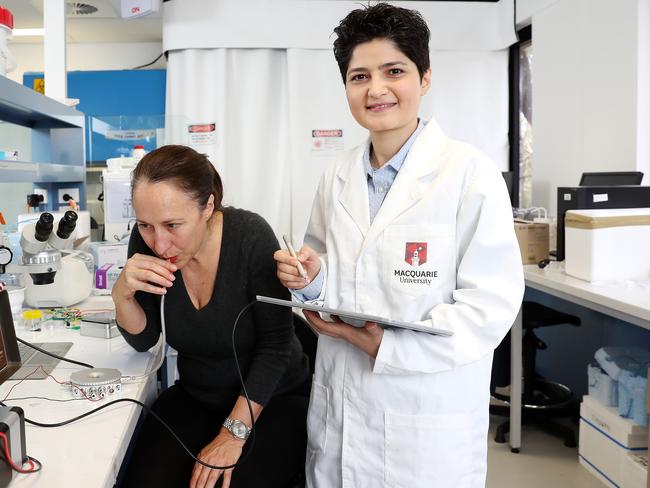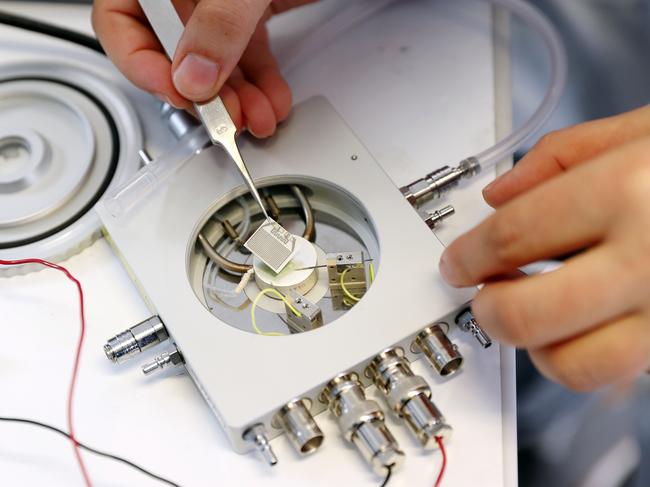New breathalyser set to detect cancer, asthma and diabetes
We know that breathalysers can detect alcohol, but now a scientists has developed a groundbreaking device to diagnose diabetes, asthma and even certain types of cancer.
NSW
Don't miss out on the headlines from NSW. Followed categories will be added to My News.
A simple breathalyser test may soon be all it takes to diagnose diabetes, asthma and even certain cancers.
Macquarie University researcher Dr Noushin Nasiri has developed a groundbreaking device that has the ability to analyse a person’s breath and detect biomarkers that could signify disease.
“Human breath contains nitrogen, oxygen, carbon dioxide and water vapour, plus a tiny fraction — less than one per cent — of thousands of other gases in very small concentrations,” Dr Nasiri said.
“There’s evidence that certain combinations of molecules among those gases can indicate particular disease states.”

The science around biomarkers in breath is cutting-edge medicine and the race is on internationally to build the devices.
MORE FROM JANE HANSEN:
PBAS: Meningococcal B vaccine would save ‘only’ nine lives
Tiniest warriors and the medical staff keeping them alive
While breathalyser technology has been around for years and used by police to detect alcohol, Dr Nasiri’s device uses nanotechnology, designed to pick up biomarker combinations with an array of tiny sensors, which can collect information and wirelessly transmit readings into a small computer that analyses the data and displays a result.
“We know there are 28 diseases that we are able to detect with a biomarker in the human breath,” Dr Nasiri said.
“One of the biomarkers for lung cancer is ethanol and if you can detect acetone, it is a biomarker for diabetes (while) asthma has nitrogen monoxide for a biomarker,” she said.

Dr Nasiri hopes the device, which is laboratory-based at present, can be developed commercially as a quick, cheap, non-invasive diagnostic test to replace existing screening programs that are expensive and often invasive.
“In terms of breast cancer, we do a mammogram but it is not 100 per cent accurate, it’s more like 74-78 per cent accurate,” she said.
“So then you have to do a biopsy but, from breath analysis, we hope it will be the first test you do because it does not give false positives.
“If the biomarker does not exist on your breath, in less than a minute you get a result.”
Dr Nasiri is now in discussion with potential industry partners to commercialise the invention.
Originally published as New breathalyser set to detect cancer, asthma and diabetes
